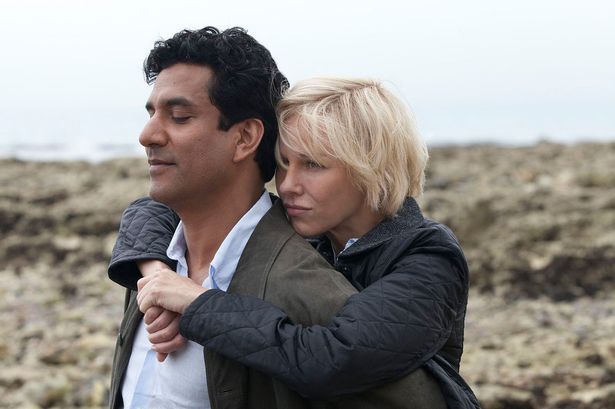Princess Diana was an extremely lonely woman.
That was my immediate takeaway as I left a recent screening of Diana, the new film that explores the last two years of the life of the late Princess of Wales, who died in 1997. This, of course, is not a particularly original or remarkable thought — part of what made Diana “the People’s Princess” was her sometimes extreme frankness about the pressures she was under throughout her marriage and her openness about her often-troubled childhood.
Despite this knowledge, it is still startling to see how few people Diana interacted with over the course of her day to day life. While he’s frequently alluded to, we never see Prince Charles or any of Diana’s formidable Windsor in-laws. And though we often see Diana (Naomi Watts) talking to William and Harry on her mobile, the viewer only sees a brief glimpse of the boys in the distance as they board a royal helicopter after a fleeting visit with their mother.
On the brink of divorce and rarely permitted to see her children, Diana spends most of 1995 depressed and alone. It was a devastating time for the princess and director Oliver Hirschbiegel does everything in his power to hammer that fact home — the gates of Kensington Palace often slam shut like prison gates, the hallways are long and unwelcoming and the palace staff often look at her with pity.
It’s in this state of mind that Diana meets the Pakistan-born Dr. Hasnat Khan (Lost‘s Naveen Andrews) by chance while visiting a patient in a London hospital. The pair make an instant connection and soon Diana is inviting him to the palace for home cooked meals in her private apartments (Diana is said to have referred to the real-life Khan as “Mr. Wonderful” to her friends.) Watching the scenes in which the princess and the cardiac surgeon began their unlikely romance, I was reminded of a recent New York Times article I read about social connections and successful relationships. “Relationships that last are ones in which the other person widens our world,” the Times revealed.
If Diana and Hasnat’s real relationship was anything like the one portrayed on film, then he certainly helped to expand her worldview. Some of the most touching moments in the film are when we see Hasnat encourage Diana to forge her own path and identity. She begins her famous advocacy campaign against land mines, making humanitarian trips around the world, and begins to raise millions of dollars to fight AIDS.
What mars the film however is the fact that the vast majority of the scenes just seem wildly implausible. Did the mother of the future King of England really wear a brown flowing wig in order to be able to sneak into London’s most famous jazz clubs? And could it be that no one in these clubs ever recognized her, even just to say something like “your eyes look exactly like Princess Diana’s”? And did she really not have any security? Unfortunately, we’ll never know which parts of the film are true-to-life or not. The real Hasnat Khan hasn’t seen it and angrily denounced the film to reporters after its British release. The screenplay is based on Kate Snell’s book Diana: Her Last Love and Politico reports that Snell’s book is based on interviews with the Princess’ friends (which is strange in itself, as anyone watching the film would conclude that Diana barely had any friends.)
And then there’s the whole issue of Dodi Fayed, a.k.a. the man most people think of when they hear the phrase “Diana’s Muslim boyfriend.” The film never introduces Dodi properly, instead he just sort of… appears with a fancy yacht in the Mediterranean and no context whatsoever. Dodi, we are supposed to believe, was never more than a fling and we should forget about him as soon as possible.
Another place that the film falters is that it fails to fully take advantage of Naveen Andrews’ talents. We never really see what a good surgeon Khan is, and the viewer is never told why he is so devoted to his work, or why — if his career and Muslim faith are so important — he would pursue the relationship with Diana in the first place. And while Diana gets a glimpse of the world beyond the palace gates through the affair, it’s unclear what Khan got out of secretly attaching himself to her. The screenplay’s clumsiness also means that while we hear both Khan and Diana quote Rumi and the Quran, these scenes seemed superficial and tacked-on, rather than revealing the roles that religion and poetry played in his life. A glimpse into Khan’s inner life would have been fascinating, and the screenplay missed a huge opportunity to explore the political implications of an English princess’ decision to have a relationship with a Pakistani Muslim immigrant. (The real Dr. Khan seemed to have thought about these issues quite a bit, if one reads between the lines of this testimony.)
Lakshmi Gandhi is a co-founder and editor of The Aerogram. Follow her on Twitter @LakshmiGandhi.













